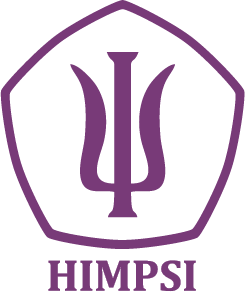HUBUNGAN ANTARA PERSEPSI TERHADAP HARAPAN ORANG TUA DAN MOTIVASI BELAJAR REMAJA MADYA DI JABODETABEK PADA MASA PANDEMI COVID-19
DOI:
https://doi.org/10.25170/manasa.v11i2.3733Keywords:
Perception of Parental Expectations, Learning Motivation, Middle Adolescence, COVID-19 PandemicAbstract
The COVID-19 pandemic requires social distancing, with one of the actions by shifting from faceto-face to online learning. Changes in learning affect students' learning motivation, in this study
is middle adolescence students. Every parent has expectations for their child. Students’
perceptions of their parents' expectations are thought to be related to students' learning
motivation. This study aimed to see the relationship between perception of parental expectations
and learning motivation in middle adolescence in Jabodetabek during the COVID-19 pandemic.
The researcher adapted the Perception of Parental Expectations Inventory (PPE) measurement
tool by Sasikala and Karunanidhi (2011) and developed a learning motivation measurement tool
based on motivational characteristics according to Sardiman (2016). The population in this study
was middle adolescent aged 15 to 18 years who were active students during the COVID-19
pandemic in Jabodetabek. The sampling technique is convenience sampling. The research method
used is quantitative with the Pearson correlation test. Participants in this study were 153 people.
The results of the correlation test showed that there was a positive and significant relationship
between perception of parental expectations and learning motivation in middle adolescence in
Jabodetabek during the COVID-19 pandemic (r = 0.427, n = 153, p < 0.05, one-tailed). That is,
the higher the middle adolescents' perception of their parents' expectations, the higher their
learning motivation. The lower the middle adolescents’ perceptions of their parents' expectations,
the lower their learning motivation. Further research can add learning achievement variable, as
well as differentiate information related to the participants' parents.
References
Batubara, J. R. (2010). Adolescent development (perkembangan remaja). Sari pediatri, 12(1), 21-9.
Bonikowska, A., & Frenette, M. (2021). Postsecondary education planning before and during the COVID-19 lockdown. StatCan COVID-19: Data to Insights for a Better Canada. Statistics Canada.
Budiman, A. (2021). Nadiem makarim desak sekolah tatap muka dimulai, sikap orang tua terbelah. Tempo. https://nasional.tempo.co/read/1498986/nadiem-makarim-desak-sekolah-tatap-muka-dimulai-sikap-orang-tua-terbelah
Cahyani, A., Listiana, I. D., & Larasati, S. P. D. (2020). Motivasi belajar siswa sma pada pembelajaran daring di masa pandemi covid-19. IQ (Ilmu Al-qur'an): Jurnal Pendidikan Islam, 3(01), 123-140.
Clophus, K. M. L. (2018). The relationship between parental expectations and post-secondary choices of high school seniors (Doctoral Dissertation, Liberty University). https://www.proquest.com/openview/97af775619947ba221025b67321898d6/1?pq-origsite=gscholar&cbl=18750
Curtis, A. C. (2015). Defining adolescence. Journal of Adolescent and Family Health, 7(2).
Fauziah, A., Rosnaningsih, A., & Azhar, S. (2017). Hubungan antara motivasi belajar dengan minat belajar siswa kelas IV sdn poris gaga 05 kota tangerang. Jurnal JPSD (Jurnal Pendidikan Sekolah Dasar), 4(1), 47
Fukuoka, Y. (2017). Effects of trust in parents, expectations from parents, and perception of parents’ expectations on university students’ achievement motivation. Kawasaki journal of medical welfare, 22(2), 61-76.
Garbe, A., Ogurlu, U., Logan, N., & Cook, P. (2020). COVID-19 and remote learning: Experiences of parents with children during the pandemic. American Journal of Qualitative Research, 4(3), 45-65.
Gardiner, D., Bausch, J., Danish, M., Moitra, E., & Yan, L. X. (2020). Youth and COVID-19: Impacts on jobs, education, rights and mental well-being: survey report 2020. Geneva: International Labour Organization. https://www.ilo.org/wcmsp5/groups/public/---ed_emp/documents/publication/wcms_753026.pdf.
Kusumaningtyas, W., Dewi, E. K., & Ariati, J. (2013). Hubungan antara Persepsi terhadap Harapan Orangtua dengan Motivasi Berprestasi pada Siswa SMP Negeri 31 Semarang. Jurnal EMPATI, 2(4), 495-506.
Letha, N. C. (2013). A study of adolescents perception of parental influence on academic activities. International Journal of Psychology and Counselling, 5(4), 66-77.
Lindberg, E. N., Yildirim, E., Elvan, O., Ozturk, D., & Recepoglu, S. (2019). Parents' educational expectations: Does it matter for academic success?. SDU International Journal of Educational Studies, 6(2), 150-160. doi:10.33710/sduijes.596569
Mubyarsah, L. R. (2020). Lima daerah penyangga ibu kota ajukan permohonan psbb bersama. Jawa Pos. https://www.jawapos.com/jpg-today/08/04/2020/lima-daerah-penyangga-ibu-kota-ajukan-permohonan-psbb-bersama/
Nurfallah, M., & Pradipta, T. R. (2021). Motivasi belajar matematika siswa sekolah menengah selama pembelajaran daring di masa pandemi covid-19. Jurnal Cendekia: Jurnal Pendidikan Matematika, 5(3), 2425-2437.
Pradnyadari, N. M. D. S., & Herdiyanto, Y. K. (2018). Dinamika Perencanaan Karir Remaja Perempuan Bali. Jurnal Psikologi Udayana, 5(3), 469-485.
Prasetyo, K. B., & Rahmasari, D. (2016). Hubungan antara dukungan sosial keluarga dengan motivasi belajar pada siswa. Jurnal penelitian psikologi, 7(1), 1-9.
Pratama, R. C., Yusuf, M., & Setyowati, R. (2021). Motivasi berprestasi, harapan orang tua dan iklim sekolah pada siswa kelas olimpiade. Jurnal Ilmiah Psikologi Candrajiwa, 6(2), 115-125.
Santrock, J. W. (2016). Children (13th ed.). McGraw-Hill Education.
Santrock, J. W. (2018). Adolescence (17th ed.). McGraw-Hill Education.
Sardiman, A. M. (2016). Interaksi dan motivasi belajar mengajar. Rajawali Pers.
Sasikala, S., & Karunanidhi, S. (2011). Development and validation of parental expectations inventory. Journal of the Indian Academy of Applied Psychology, 37(1), 114-124.
Sasikala, S., & Karunanidhi, S. (2011). Development and validation of parental expectations inventory. Prasad Psycho Corporation. https://prasadpsycho.com/product/percepetion-of-parental-expectations-inventory/
Satuan Tugas Penanganan COVID-19. (2020). Mengurangi kontak antar warga (social distancing). https://covid19.go.id/edukasi/masyarakat-umum/mengurangi-kontak-antar-warga-social-distancing
Schunk, D. H., Pintrich, P. R., & Meece, J. L. (2014). Motivation in education: theory, research, and applications (4th ed.). Upper Saddle River, NJ: Pearson Prentice Hall.
Steinberg, Laurence. (2017). Adolescence (11th ed.). McGraw-Hill Education.
United Nations Children’s Emergency Fund. (2020). Covid-19 and girls’ education in east asia and pacific. https://www.unicef.org/eap/media/7146/file/Issue_Brief%3A_Issue_Brief%3A_COVID-19_and_Girls%E2%80%99_Education_in_East_Asia_and_Pacific.pdf.
Vardia, M. A., & Nurdibyanandaru, D. (2018). Pengaruh pola asuh (authoritative, authoritarian, permissive, dan negligent) dan adversity quotient terhadap motivasi berprestasi pada siswa sma taman siswa malang. Jurnal Psikologi dan Perkembangan, 7, 8-28.
Watabe, A., & Hibbard, D. R. (2014). The influence of authoritarian and authoritative parenting on children’s academic achievement motivation: A comparison between the United States and Japan. North American Journal of Psychology, 16(2), 359–382.
Wijaya, T., Zhou, Y., Purnama, A., & Hermita, N. (2020). Indonesian students’ learning attitude towards online learning during the coronavirus pandemic. Psychology, Evaluation, and Technology in Educational Research, 3(1), 17-25.
Wijaya, C. (2020). Sekolah di tengah pandemi covid-19: para siswa ‘tertinggal’ secara akademik, orang tua: ‘saya pilih anak selamat’. BBC News Indonesia. https://www.bbc.com/indonesia/indonesia-52661836
Wlodkowski, R.J., & Jaynes, J.H. (1991). Eager to learn: Helping children become motivated and love learning. Jossey-Bass Publishers.
World Health Organization (2020, October). Corona virus disease (COVID-19). https://www.who.int/news-room/q-a-detail/coronavirus-disease-COVID-19
Worldometer. (2022). Coronavirus Cases. https://www.worldometers.info/coronavirus/country/indonesia/.
Yamamoto, Y., & Holloway, S. D. (2010). Parental expectations and children's academic performance in sociocultural context. Educational Psychology Review, 22(3), 189-214. https://doi.org/10.1007/s10648-010-9121-z
Zaccoletti, S., Camacho, A., Correia, N., Aguiar, C., Mason, L., Alves, R. A., & Daniel, J. R. (2020). Parents’ perceptions of student academic motivation during the COVID-19 lockdown: A cross-country comparison. Frontiers in psychology, 11. https://doi.org/10.3389/fpsyg.2020.592670
Zhang, Y., Haddad, E., Torres, B., & Chen, C. (2011). The reciprocal relationships among parents’ expectations, adolescents’ expectations, and adolescents’ achievement: A two-wave longitudinal analysis of the NELS data. Journal of youth and adolescence, 40(4), 479-489. https://doi.org/10.1007/s10964-010-9568-8
Downloads
Published
Versions
- 2023-01-31 (2)
- 2023-01-25 (1)
Issue
Section
License
Copyright (c) 2023 MANASA

This work is licensed under a Creative Commons Attribution-NonCommercial-ShareAlike 4.0 International License.









.png)
.png)

